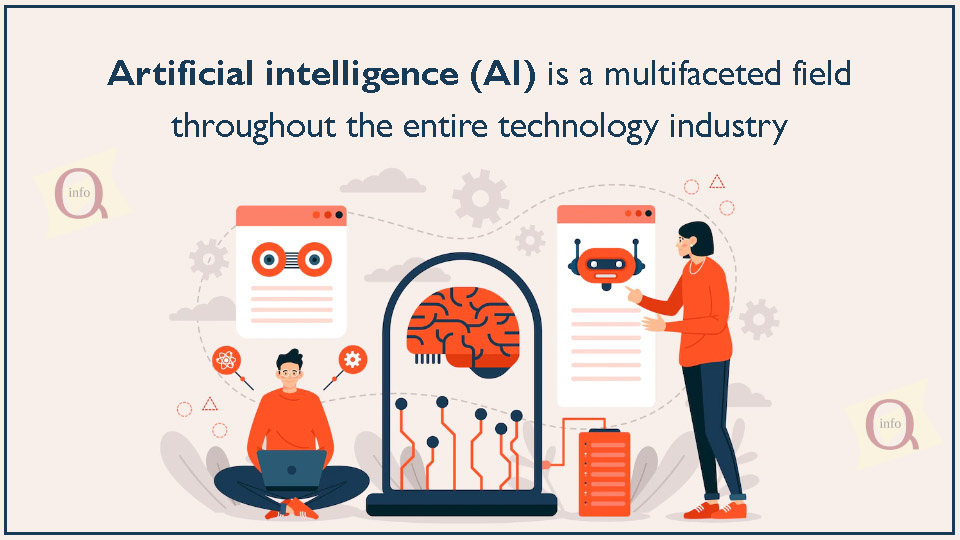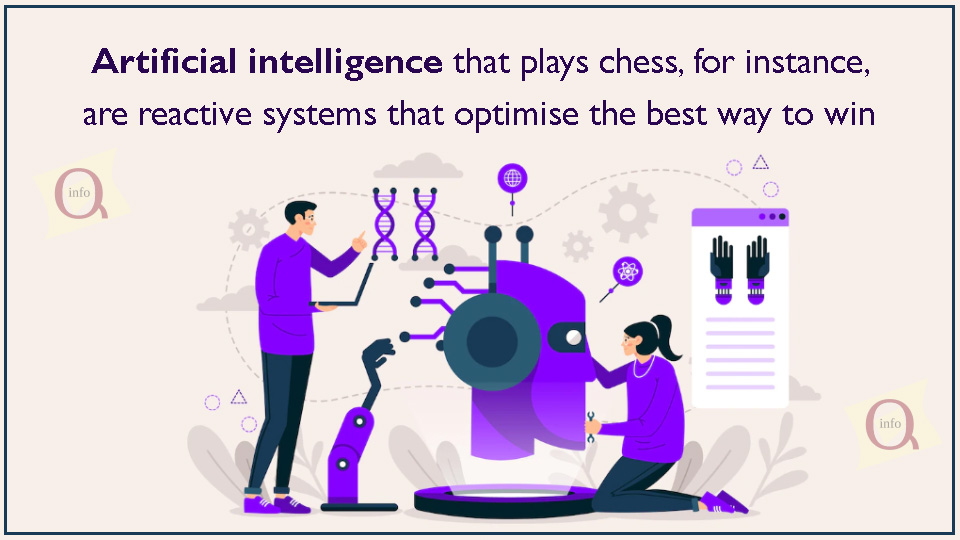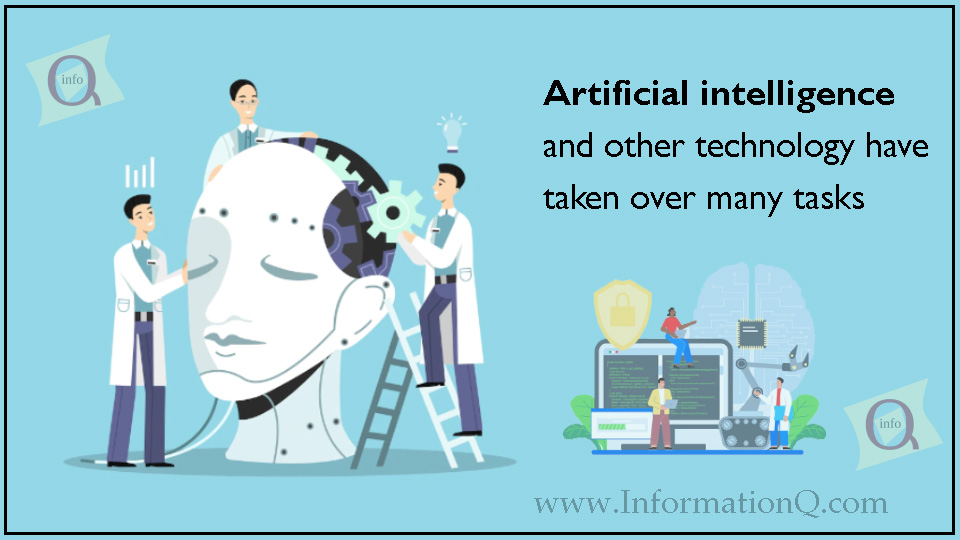There’s a lot of excitement around artificial intelligence (AI) these days and for a good cause. Many technological breakthroughs in science fiction have become more workable in recent years.
What Is Artificial Intelligence?
Creating intelligent computers that can do work that requires human intellect is the broad goal of artificial intelligence. AI is a subfield of computer science. Artificial intelligence (AI) is a multifaceted field throughout the entire technology industry. The paradigm has shifted as a result of recent developments in machine learning and deep learning.
By using AI, computers may mimic and even surpass our cognitive powers. There is a growing presence of AI in our everyday lives. AI has become the advent of self-driving vehicles to the popularity of virtual assistants like Siri and Alexa. Thus, several IT firms operating in different sectors are investing in AI technology.
History of Artificial Intelligence:
An overview of AI’s progress over the last 60 years is here:
1956: During the inaugural AI conference, John McCarthy first used the phrase “Artificial Intelligence.”
- 1969: The first mobile, multipurpose robot named Shakey got created. It may now act on its initiative rather than following a set of predefined steps.
- 1997: In a chess tournament against the world champion, the supercomputer Deep Blue got created and triumphed. IBM’s development of this vast computer was a significant technological breakthrough.
- 2002: The first viable robotic vacuum got developed.
- 2005: Several technological advancements have been made in the thirteen years since 2005. It includes advances in voice recognition, robotic process automation (RPA), a dancing robot, and smart houses.
- 2020: The SARS-CoV-2 (COVID-19) epidemic began to spread in 2020. Baidu makes available the LinearFold AI algorithm medical and scientific and medical teams working on a vaccine. In only 27 seconds, the system can accurately predict the virus. Additionally, it predicts RNA sequence, making it 120 times quicker than previous approaches.
What Are the Types of AI?
The goal of reactive AI is to maximise results in response to a given set of inputs via the application of algorithms. Artificial intelligence that plays chess, for instance, are reactive systems that optimise the best way to win. In contrast to proactive AI, which can learn and adapt to new circumstances, reactive AI is often somewhat static. So, it will consistently deliver the same result when fed the same data.
Here are some examples of different kinds of AI:
1. Purely Reactive
These gadgets were designed to perform only one thing, and they did it really well. For instance, a chess machine can analyse the game and determine the optimal move to play to win.
2. Limited Memory
These computers learn from past experiences and keep amassing information in their databases. They remember enough to act from their own experience or from what they have learned from others. For instance, this system may provide restaurant recommendations using the collected location data.
3. Theory of Mind
This AI can read human emotions and carry on a normal conversation. But no such machine has yet been constructed.
4. Self Aware
Self-aware machines are the next step in the development of these cutting-edge tools. They will have high levels of cognitive ability and awareness.
What are the Advantages of Artificial Intelligence?
There is no denying that technology has improved the quality of our lives. Artificial intelligence and other technology have taken over many tasks. Such as making music suggestions, providing navigation, facilitating mobile banking, and preventing fraud. The border between progress and devastation is thin. All stories have two sides, and the debate about AI is no different. Let’s examine the benefits of Artificial Intelligence.
1. Lessening the frequency and severity of mistakes made by humans
The ability of artificial intelligence to cut down on mistakes. Besides, improving precision and accuracy is one of its primary benefits. Artificial intelligence makes judgments based on data collected and a predetermined set of rules. AI may eliminate these mistakes with careful programming.
2. Zero Risks
The ability to delegate dangerous tasks to AI robots is another significant benefit of AI. Machines with metal bodies are durable and can endure adverse atmospheres. This makes them ideal for defusing a bomb, travelling to space, and exploring the ocean’s depths. Also, they can take on more responsibilities without tiring out and provide reliable results.
3. Constant Availability
Many studies have shown that the most productive time for an individual is between three and four hours daily. Humans need vacation time and other time off to maintain a healthy work-life balance. In contrast, AI doesn’t get tired or need breaks while working. They can do many jobs simultaneously with pinpoint accuracy and think more than humans. With the help of Artificial Intelligence algorithms, they can easily deal with tedious, repetitive tasks.
4. Digital Help
Companies on the cutting edge of technology are replacing human employees with Artificial Intelligence to ease seated customer service. There are a lot of websites that use digital helpers to send people to the pages they want to see. Through friendly discussion, we can fill them in on our hunt. Identifying the difference between a person and a chatbot may be challenging when interacting with specific chatbots.
5. Use In Everyday Life
These days, we can’t function without our smartphones and constant access to the web. Google Maps, Alexa, Siri, Cortana on Windows, OK Google, snapping pictures, making calls, reacting to emails, etc., are a few examples. These are many programs we use daily. The weather for today and the next several days may be predicted using a variety of AI-based approaches.
You asked a local for directions while making travel plans about 20 years ago. Type “where is Bangalore” into Google, and you’ll find your way. A Google map will show you where Bangalore is located and the optimal way to get there.
Conclusion:
The field of artificial intelligence is becoming the cutting edge of innovation. The need for skilled and accredited individuals in artificial intelligence (AI) is expanding. Because more and more businesses embrace AI and divide funds for experts in the industry. Because of the exponential growth of this subject, it will have far-reaching repercussions for many other businesses. It will also affect people’s daily lives.



Leave a Reply